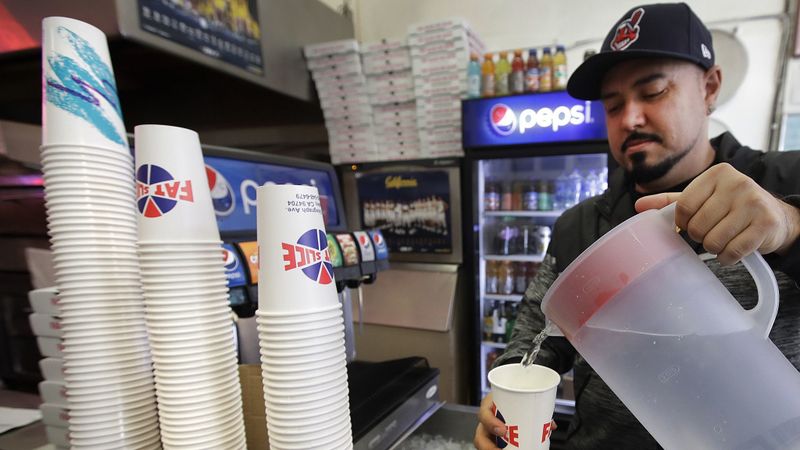If your bathtub was overflowing, you wouldn’t immediately reach for a mop — you’d first turn off the tap. That’s what we need to do with single-use plastics.
Plastic was never recycled at a high level, and it’s even worse since 2018, when China closed its doors to imported mixed plastic waste. U.S. recyclers have shifted exports to countries such as Malaysia, Indonesia, Vietnam and Thailand, but those countries lack the capacity to handle the volume we’re sending, which has brought them new environmental problems.
Moreover, despite our willingness to move plastic waste around the world, only about 9% of the plastic ever made has actually been recycled. We just keep making more of the stuff. If your bathtub was overflowing, you wouldn’t immediately reach for a mop — you’d first turn off the tap. That’s what we need to do with single-use plastics.
Berkeley recently passed a law that moves us a step closer to that, and it’s something that should be replicated across the country. The ordinance does not simply ban plastic foodware, leaving businesses to replace it with other throwaway materials: It rejects throwaway culture altogether.
Beginning immediately, Berkeley will require that accessory items such as utensils, straws, lids and sleeves be provided by request only and that food vendors have compost bins for all customers. In January 2020, the city will also require that all disposable takeout foodware be Biodegradable Products Institute-certified compostable and that vendors charge 25 cents for hot and cold takeout cups. If a customer brings a reusable cup, the charge is not applied. And by July 1, 2020, the ordinance will require that all eat-in dining be on reusable foodware.
These are groundbreaking shifts away from our culture of overconsumption. The Berkeley ordinance stands in stark contrast to a recently announced industry initiative calling itself the “Alliance to End Plastic Waste” and funded by companies including Exxon, Dow, Shell, Chevron Phillips and Procter & Gamble. The industry alliance has promised to invest $1.5 billion in its efforts over five years for things such as encouraging more recycling. But at the same time, the Guardian has reported, some of the companies involved are investing more than $180 billion in new plastic manufacturing facilities.
It’s not that there isn’t still a role for recycling in efforts to reduce trash. Cans, bottles, paper and cardboard are highly recyclable.
But we need to be more realistic about the kinds of plastic that can be effectively collected, processed and then reused. Single-stream recycling, which co-mingles different materials for collection, is convenient, but it leads to increased contamination and thus lower quality recyclables.
Even with increased investment in sorting, recycling will never be able keep up with all of the new types of plastics on the market or the ever-increasing flow of plastic waste. We need to prioritize reduction and reuse, making recycling the last option, especially for single-use items.
That’s why the Berkeley ordinance is so important. It recognizes the need for a fundamental shift in how the things we buy are packaged and served, and that’s the only way we can begin to make a dent in the plastic pollution crisis.
Annie Leonard is executive director of Greenpeace USA. Martin Bourque is executive director of the Ecology Center, which launched the nation’s first curbside recycling program. They are Berkeley residents.
By Annie Leonard and Martin Bourque. Originally posted in LA Times.




